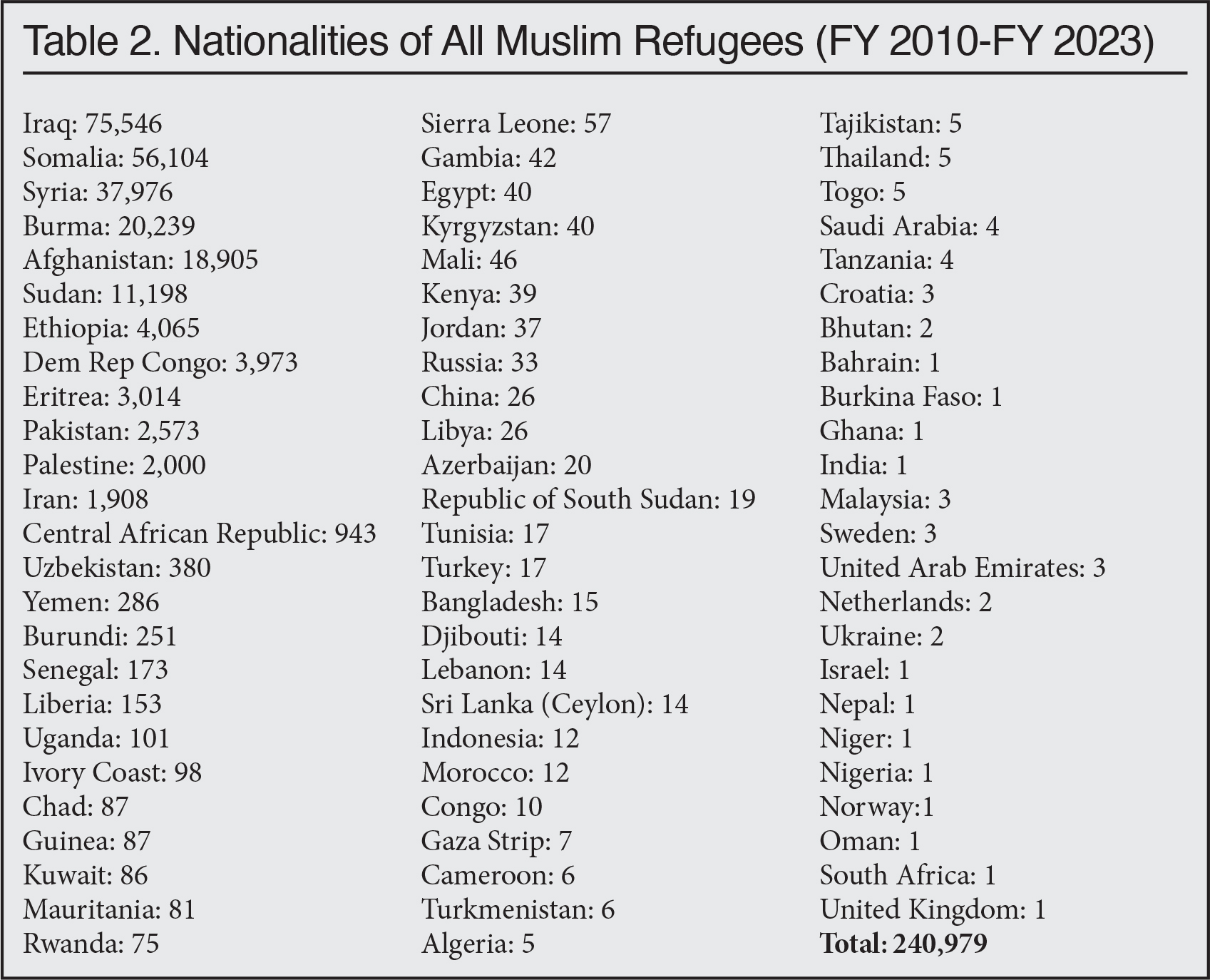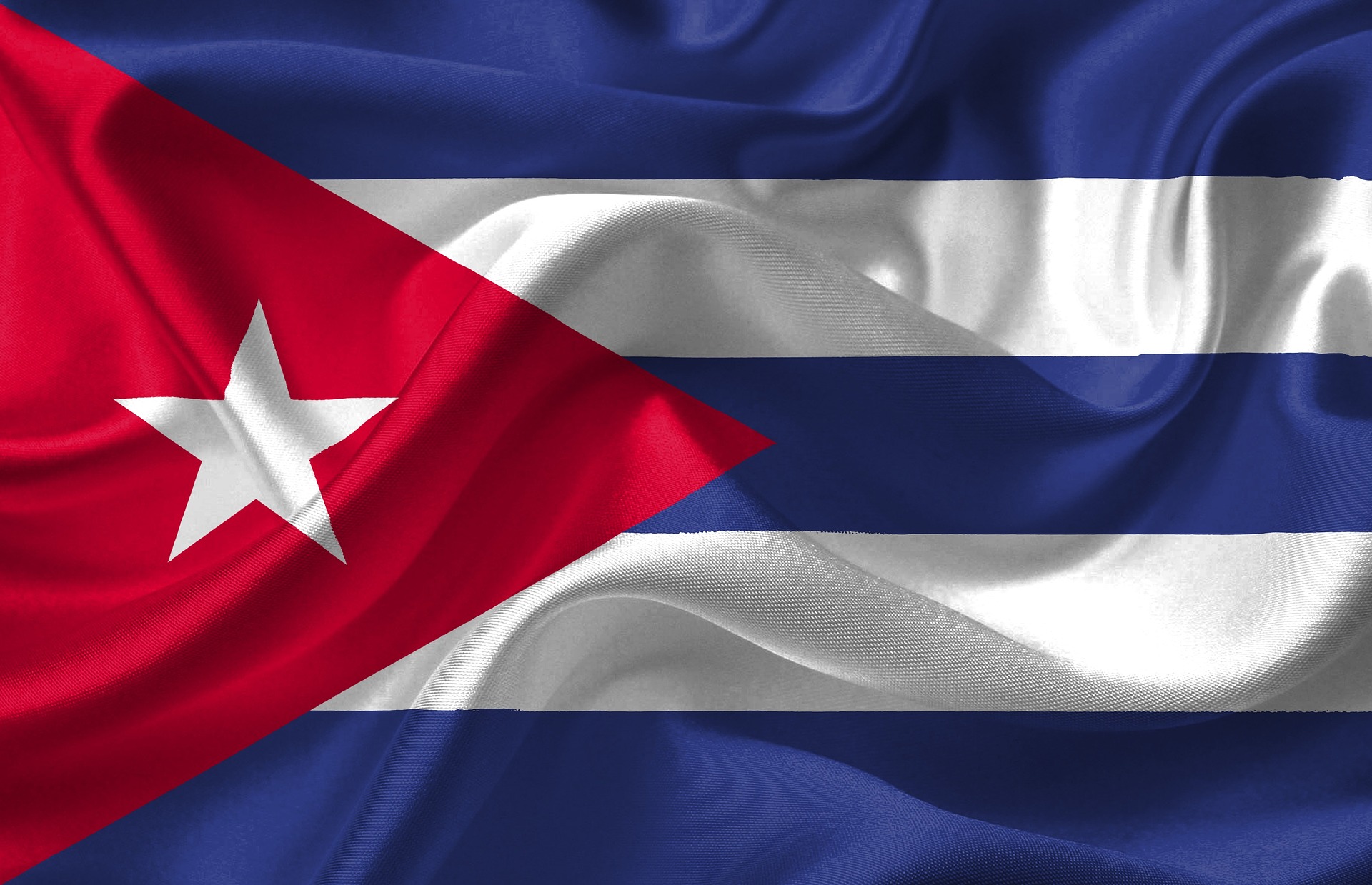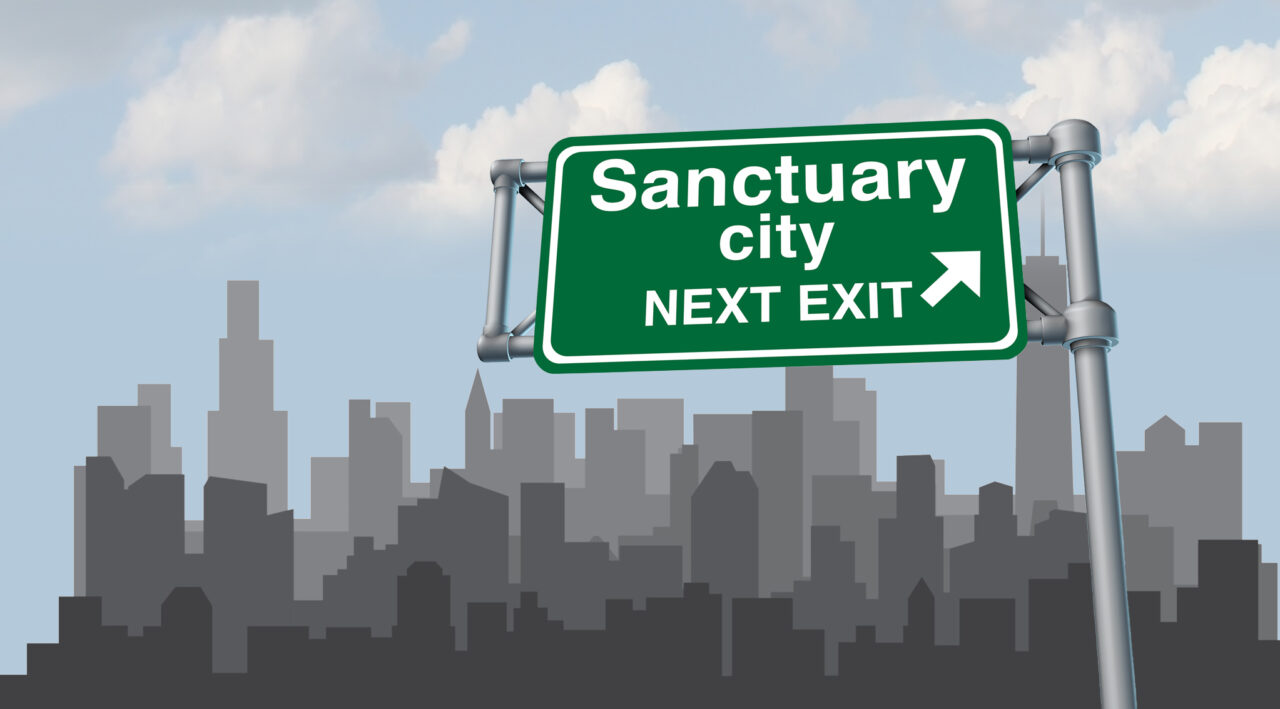Resettled Refugees Do Not Necessarily Leave Their Beliefs and Biases Behind
Following the latest Hamas attack on Israel and Israel’s retaliatory airstrikes into the Gaza strip, a number of U.S. lawmakers have called for welcoming Palestinian refugees into the United States while others have asked to ban their entry altogether. In Congress, Republican representatives introduced the Guaranteeing Aggressors Zero Admission Act (GAZA Act) to prevent Palestinians from entering the United States.
While the number of Palestinian refugees resettled into the United States has remained low (some 2,000 in total in the past 13 years), that of refugees from the Arab and/or the Muslim world is significant — around 241,000 in that same period (see below for a detailed count). By now, most are likely either lawful permanent residents (a.k.a. green card holders) or American citizens.
The fact is, any and every resettled refugee into the United States has no choice but to become a lawful permanent resident and can aim to be an American citizen and voter. Per U.S. immigration law, resettled refugees must apply for a green card one year after arrival and can apply for citizenship four years later (not five, as the five-year count for refugees starts on the day of arrival).
The number of resettled refugees has increased under the Biden administration. This fiscal year should witness the highest number of refugee admissions in three decades. Moreover, new programs recently introduced by this administration within the U.S. Refugee Admissions Program (USRAP) are set to change the essence of refugee resettlement by allowing private sponsors (American citizens but also green card holders, including newly resettled refugees and other newcomers) to select their own “refugees” and future American citizens. The “Welcome Corps” program will get them into American communities, while the “Welcome Corps on Campus” will send them straight to U.S. dorms and campuses.
Former UN Ambassador Nikki Haley, now a Republican candidate for president, seemed to suggest she favored opening the door to Palestinian refugees (something she has since disavowed) and said that one “can separate civilians from terrorists”. Assuming that is true, other concerns still need to be addressed. “Civilian” refugees, like any migrant group, carry with them their beliefs, values, and biases. Some might be fleeing repressive regimes and distancing themselves from anti-Western stands. But those who hold pro-Palestinian, anti-Israel, anti-Jewish, and/or anti-American sentiments do not necessarily leave them behind when they move here. Also, “civilians” admitted as refugees are future voters and could very well end up being lawmakers, representatives in Congress, governors, mayors, etc. They could act to change American policies, or at least influence them.
The current Israel-Hamas war has driven hundreds of thousands of civilian Palestinian and pro-Palestine and anti-Israel protesters into the streets, not just in the Middle East but in many countries across the world, including in Europe and the United States. Some cheered Hamas’s criminal acts of so-called “resistance”, others called to protect Palestinian lives and sovereignty. Many called for an Intifada from within American campuses — the same U.S. campuses that will soon receive refugees possibly picked and sponsored by those same protestors.
Those sympathizers of the Palestinian cause were not all Palestinians, but most seemed to be of Arab or Muslim descent.
A Palestinian national in the Middle East recently explained to CNN anchors how U.S. support (including financial) of Israel is angering “not only Palestinians, but Arabs and Muslims”. Rep. Rashida Tlaib, the sole Palestinian-American in Congress, accused the Biden administration of funding a “genocide against Palestinians. In a statement released shortly after the Hamas attacks, Tlaib noted that “American Muslims and Arab Americans do not feel represented by our government right now.” She warned Biden: “Your war and destruction only approach has opened my eyes and many Palestinian Americans and Muslims Americans like me. We will remember where you stood.”
In his address to the nation following his trip to Israel, President Biden reassured “the Muslim American community, the Arab American community, the Palestinian American community” and all those who are hurting: “I want you to know I see you. You belong. And I want to say this to you: You’re all America. You’re all America.”
This is, indeed, America today. The immigrants who made America are now joined by new immigrants who could very well change this country for good.
For a clearer picture of the Muslim refugees (including Palestinians) resettled in the United States from FY 2010 through FY 2023 (available data dates back to FY 2010), a snapshot of our current or future “Muslim American community” is displayed below: The number and religion of Palestinian refugees admitted through the U.S. Refugee Resettlement Program during FY 2010-2023 (October 1, 2009, through September 30, 2023); the number and religion of all refugees by fiscal year; as well as a count by nationality of Muslim refugees resettled here during that same period. All data was retrieved from the Refugee Processing Center portal.
The top nationalities of Muslim refugees resettled here these past 13 years are: Iraq, Somalia, Syria, Burma (Myanmar), Afghanistan, Sudan, Ethiopia, the Democratic Republic of Congo (DRC), Eritrea, Pakistan, Palestine, and Iran. Refugees from these countries are mostly Muslims except for nationals of the DRC, Burma, Eritrea, and Iran who are mostly Christians. (This tendency is changing for Burma; the past couple of fiscal years saw a higher proportion of Muslim Burmese refugees than Christian ones.)
Religion of All Refugees (FY 2010-FY 2023)
- Christianity: 338,893 (48.6 percent)
- Islam: 240,979 (34.5 percent)
- Hinduism: 41,030 (5.9 percent)
- Buddhism: 39,442 (5.6 percent)
- Judaism: 1,685 (0.2 percent)
- Non-Affiliated + Other= 35,855 (5.2 percent)
- Total Refugees: 697,884
Religion of Palestinian Refugees (FY 2010-FY 2023)
Palestine
- Islam: 2,000 (99.7 percent)
- Christianity: 5 (0.3 percent)
- Total: 2,005
Gaza Strip
- Islam: 7 (100 percent)
- Christianity: 0
- Total: 7
Total: 2,012
 |
 |






